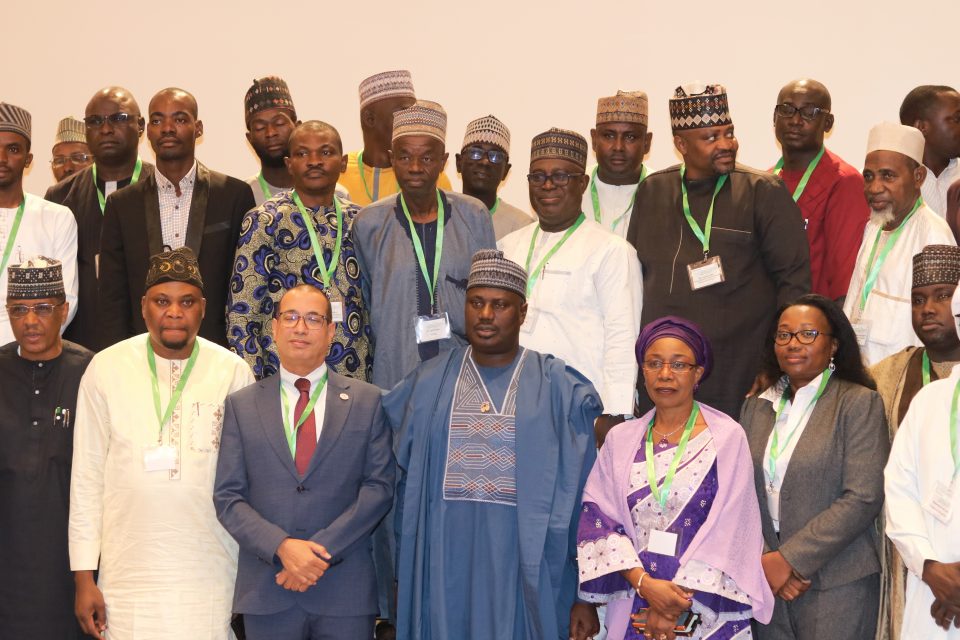Photo caption: Participants at the workshop
By Emeka Ugwuanyi
African Union (AU) and the Federal Government have agreed to explore areas of partnership to reinforce the growth of livestock industry in Nigeria.
The collaboration talks on possible opportunities to strengthen Nigeria’s livestock industry topped the agenda at the recent African Pastoral Markets Development (APMD) Platform Technical Pillar Planning and Stakeholders Engagement Workshop held in Abuja.
The event was organised by African Union Inter-African Bureau for Animal Resources (AU-IBAR) and the Federal Ministry of Agriculture and Food Security.
AU estimated that the continent is home to 268 million pastoralists, which is considered more than a quarter of the total population, obviously makes their contributions particularly significant since they account for about 30% of agricultural gross domestic product (GDP) in many Sahel nations.
However, these pastoralists face considerable challenges as ongoing droughts and rangeland degradation pose serious threats to their livelihoods and food security. There is also persistent conflicts and unfavorable policies which hinder their ability to improve productivity and enhance their economic situations.
As a result, agriculture specialists have emphasised the need for knowledge sharing, access to finance, agricultural inputs, and policies that are supportive of small-scale cattle farmers. The workshop discussed technical support in the pastoral farming sector, capacity development, market access and rural network empowerment.
The forum also recommend the need for AU to work with the Federal Government to ensure APMD platform supports mitigation interventions to assist pastoral farmers reduce economic losses from different animal diseases, identification of good fodder varieties.
The Minister of State, Federal Ministry of Agriculture and Food Security, Senator Aliyu Sabi Abdullahi, noted that the importance of an improved and efficient production process in pastoral farming cannot be overstated , where cattle farming accounts for a huge size of the agricultural contribution to national Gross Domestic Product (GDP).
According to the Minister, 70 percent of Nigeria’s population depends on agriculture and animal husbandry but some of the players still live below the poverty line. Therefore, he noted that the industry needed technological support and human resource development to improve the livelihoods of the farmers.
He pointed out that the government was determined to pursue initiatives capable of opening up opportunities for small-scale farmers to access technology and significantly improve the nation’s cattle stock.
According to him, the government’s goal is to drive agricultural and livestock expansion sufficient to meet the anticipated increase in population growth, adding that the proposed APMD platform presents a significant opportunity to enhance local cattle farmers productivity and to generate socio-environmental benefit at scale.
The Minister expressed optimism that joint efforts would help Nigeria become self-sufficient in domestic cattle production in the years to come.
In an interview, a retired Permanent Secretary, Adamawa State Ministry of Agriculture, Dr Abdurrahman Tukur, noted that creating a robust framework to support pastoral farming was essential for sustainable long-term economic growth.
During the workshop, he stressed the urgent need to revitalise the livestock industry, especially pastoral farming in pursuit of food security and competitiveness.
According to him, the sector not only puts food on the table for millions of Nigerians but also provides a means of livelihood for countless farmers and other ancillary service providers.
With the APMD platform, he sees a mechanism that is capable of streamlining the value chain system, easing public access to livestock products and cushioning the impact of food inflation on farmers and consumers.
He said concerned government agencies and stakeholders should engage in productive dialogue and share “best” ideas, practices, and technologies to advance the livestock industry.
The Director, Animal Husbandry Services, Federal Ministry of Agriculture and Food Security, Dr Winnie Lai-Solarin, assured that the government was determined to implement policies and programmes to address the issues faced by the livestock sector. She indicated that several efforts have been made to identify shortcomings and gaps and that there is much work to do.
She reiterated that the ministry will continue to forge partnerships with the private sector to devise solutions to enable the government realise the dream of a progressively expanding and modernized livestock industry.
According to her, the livestock sector is properly positioned and can offer immense potential for creating socio-environmental benefits alongside economic returns.
The pivotal role of APMD platform, she noted, is not only crucial for ensuring food security but also for leading the transition to a sustainable livestock industry.
The Director, AU-IBAR, Dr. Huyam Salih, represented by the Project Coordinator, APMD Platform, Prof Ahmed Elbeltagy, lauded the Federal Government for partnering AU-IBAR in the bid to use the platform to promote the use of new technologies, techniques and knowledge that could help boost the farmers’ productivity and income.
She explained that APMD, when functional, can create economically sustainable long-term opportunities, as well as incentives for producers.
She outlined three primary pillars guiding their initiatives: an enabling policy environment, a functional data ecosystem, and private-sector integration.
She expressed gratitude to the Bill and Melinda Gates Foundation for their financial backing and strategic collaboration, noting that their ongoing investment in the pastoral livestock value chain is both visionary and impactful, helping to tackle significant challenges and foster sustainable economic growth for pastoral communities throughout the region.



